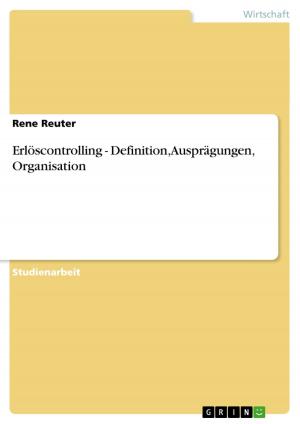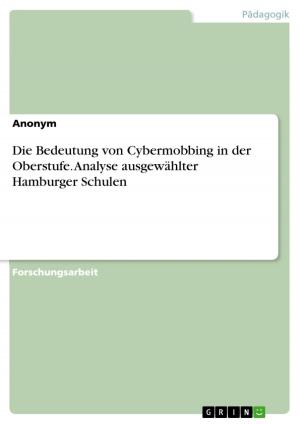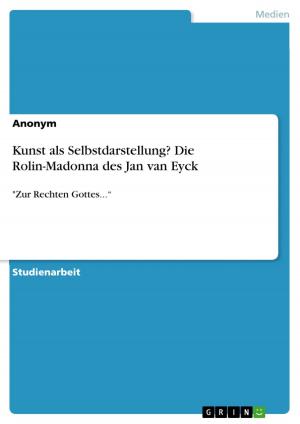The Challenge of Great Power Politics within the United Nations
Nonfiction, Social & Cultural Studies, Political Science, International, International Relations| Author: | Bernarda Ivankovic | ISBN: | 9783656958871 |
| Publisher: | GRIN Verlag | Publication: | May 11, 2015 |
| Imprint: | GRIN Verlag | Language: | English |
| Author: | Bernarda Ivankovic |
| ISBN: | 9783656958871 |
| Publisher: | GRIN Verlag |
| Publication: | May 11, 2015 |
| Imprint: | GRIN Verlag |
| Language: | English |
Bachelor Thesis from the year 2015 in the subject Politics - International Politics - Topic: International Organisations, grade: 1, University of Vienna, course: The United Nations, language: English, abstract: After the Second World War, Europe was demolished. Over 60 million people were killed, industry was destroyed, and above all the war induced deep moral degradation. While the world struggled to recover from the desolation of the war, a new global organization, the United Nations, was established, its main purpose was and still is to ensure peace and security within the international community and chiefly to avoid a third world war. Over the past decades, the United Nations and its humanitarian interventions have been an interesting and important theme, hence more literature is being written on this topic. However the effectiveness of the Security Council at executing international peace through humanitarian interventions seems to be a relatively neglected area, therefore this field is the focus of my dissertation. The importance of the United Nations on the global stage is indeed a popular topic which has undergone much research. Nevertheless, the mismatch of attitudes between the great powers within the Security Council concerning different humanitarian interventions but with similar origins still has not been sufficiently explored. In this dissertation, I intend to fill a gap in this area of research, which is not only a globally important issue, but also a topic that has been under-researched. The aim of this dissertation is to shed light on challenges that the United Nations faces, with an emphasis on the ethics of humanitarian intervention. In order to find an appropriate answer to this question, I will examine two case studies, which have been chosen as examples of two different UN reactions to a crisis. The first case study is NATO's military operation against the Federal Republic of Yugoslavia during the Kosovo war in 1999, the second is a non-combat military operation in Syria. While considering these two case studies, it is also crucial to constantly keep in mind the motives and ideas that lead to the development of the UN and what the UN is supposed to represent. In order to understand this, I will first provide a brief history of the UN, and detail how it is structured, and most notably, the Charter of the UN as a source of right. Possible limitations of this project could be an inability to come to the right conclusions and find a universal solution to these kinds of crises.
Bachelor Thesis from the year 2015 in the subject Politics - International Politics - Topic: International Organisations, grade: 1, University of Vienna, course: The United Nations, language: English, abstract: After the Second World War, Europe was demolished. Over 60 million people were killed, industry was destroyed, and above all the war induced deep moral degradation. While the world struggled to recover from the desolation of the war, a new global organization, the United Nations, was established, its main purpose was and still is to ensure peace and security within the international community and chiefly to avoid a third world war. Over the past decades, the United Nations and its humanitarian interventions have been an interesting and important theme, hence more literature is being written on this topic. However the effectiveness of the Security Council at executing international peace through humanitarian interventions seems to be a relatively neglected area, therefore this field is the focus of my dissertation. The importance of the United Nations on the global stage is indeed a popular topic which has undergone much research. Nevertheless, the mismatch of attitudes between the great powers within the Security Council concerning different humanitarian interventions but with similar origins still has not been sufficiently explored. In this dissertation, I intend to fill a gap in this area of research, which is not only a globally important issue, but also a topic that has been under-researched. The aim of this dissertation is to shed light on challenges that the United Nations faces, with an emphasis on the ethics of humanitarian intervention. In order to find an appropriate answer to this question, I will examine two case studies, which have been chosen as examples of two different UN reactions to a crisis. The first case study is NATO's military operation against the Federal Republic of Yugoslavia during the Kosovo war in 1999, the second is a non-combat military operation in Syria. While considering these two case studies, it is also crucial to constantly keep in mind the motives and ideas that lead to the development of the UN and what the UN is supposed to represent. In order to understand this, I will first provide a brief history of the UN, and detail how it is structured, and most notably, the Charter of the UN as a source of right. Possible limitations of this project could be an inability to come to the right conclusions and find a universal solution to these kinds of crises.















